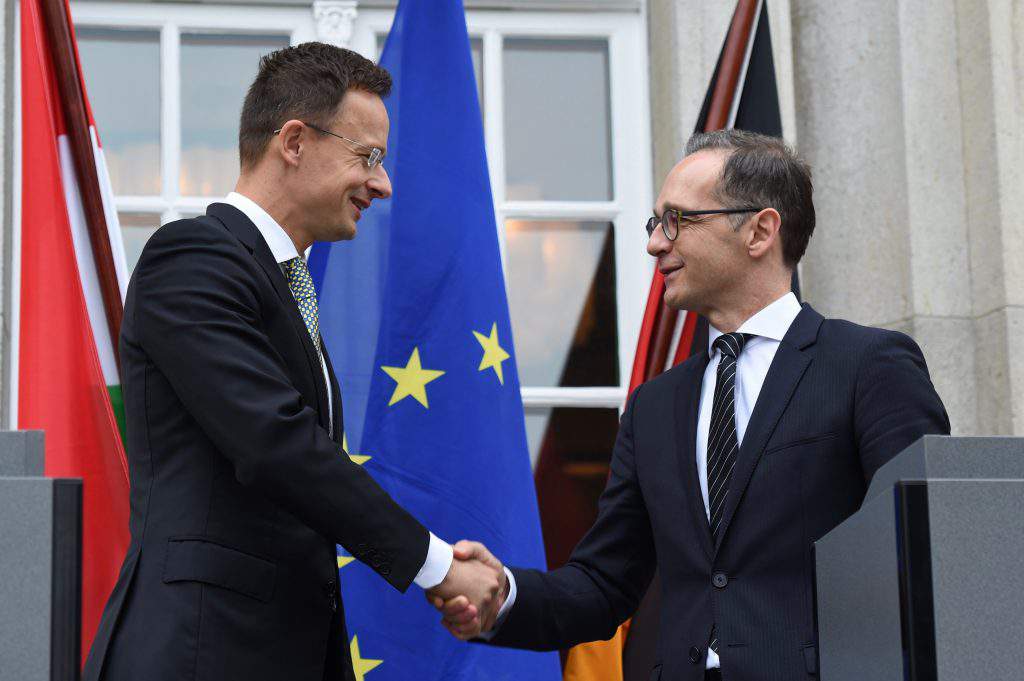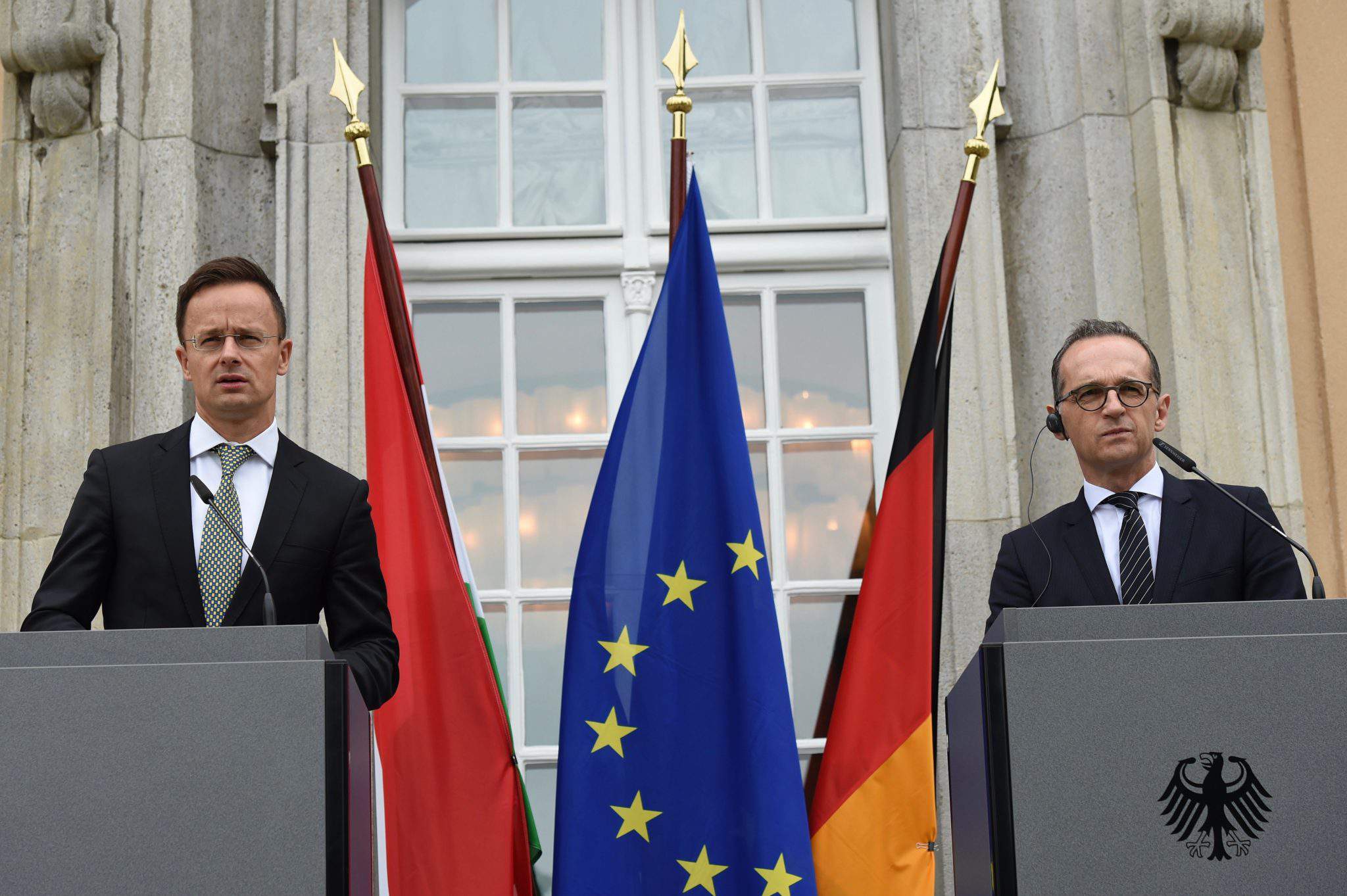Foreign Minister: Cooperation with Germany needs constant improvement
Germany and Hungary, as strategic allies and friends, must work continuously to improve cooperation and maintain dialogue, Péter Szijjártó, the foreign minister, said on Tuesday after meeting his German counterpart in Berlin.
At a joint press conference with Heiko Maas, the Hungarian minister said: “We fully agree with Germany when we talk about wanting a strong, secure and competitive European Union.”
“We agree that we want a European Union that can defend its borders and to be in the forefront of efforts to develop areas around Europe,” Szijjártó said.
Referring to an agreement signed today on Hungarian-German water development projects in Africa and the Middle East, Szijjártó said this would give many refugees a chance to return to their homelands in safety and with dignity.
Hungary, he added, will vote for Germany on Friday, when the non-permanent members of the UN Security Council are elected for the 2019-2020 term. It will also support Germany when it comes to electing members of the UN Human Rights Council for the 2021-2023 period, he said.

Photo: MTI
Szijjártó and Maas underscored the importance of bilateral economic relations. Maas noted that Germany is Hungary’s most important economic partner, with 6,000 German companies active in the country.
Szijjártó added that these companies provide jobs for 300,000 people, and the value of German investments exceeds 20 billion euros.
A fresh survey by the German-Hungarian Chamber of Industry and Commerce suggest that German companies operating in Hungary are more satisfied with their operating conditions than ever before, he said, adding that in the 2014-2018 government cycle, there were 63 German large-scale investments in Hungary, creating 17,000 jobs.
Szijjártó said Hungary wants to further strengthen ties to ensure that the EU does not lose out when it comes to the transformation in world trade and digitalization, and in the face of the America First economic policy and China’s economic surge.
Cooperation between Germany and central Europe is key, he said, adding that Germany was “the backbone of Europe’s competitiveness and Central Europe provides a hinterland to the German economy”.
Haas said German-Hungarian dialogue should be strengthened, since it was now more important than ever for the EU to act in lockstep. “We may not always agree, but it is very important now that we find good compromises,” the German minister added.
He noted a German-Hungarian Forum will be held in Budapest in December, focusing on people under the age of 35.
Maas said the international agreement on the Iranian nuclear programme and US steel and aluminum tariffs were areas in which the EU had acted in unison. “Germany is not big enough to enforce its interests alone,” he said.
The German minister also referred to differences of opinion between the two sides, including on Hungary’s “Stop Soros” draft package of laws. He noted changes made to the draft and welcomed the government’s assurance that it would take into consideration the standpoint of the Venice Commission of the Council of Europe.
Szijjártó said no “commitment” had been made regarding the Venice Commission in connection with the “Stop Soros” bill.
Parliament, he said, would decide on the bill. “I told the minister that if someone in Hungary contravenes our national security interests, then they must take the consequences,” he said.
Outlining what Hungary considers to be violations of its national security interests, Szijjártó noted “any attempt to inspire illegal migrants to violate the country’s borders … helping them gain opportunities they have no right to [and] helping people to apply for asylum when they have no such right.”
“When protecting the southern borders of Hungary, we are also defending Germany,” the minister said.
Featured image: MTI
Source: MTI
please make a donation here
Hot news
What happened today in Hungary – 26 July, 2024
Drama: number of births in a 20-year low in Hungary
Yay or nay? – 6 odd Hungarian delicacies that make our skin crawl
Budapest tourism “exploded” this past weekend
Container transport in Budapest may stop: How will this affect Hungarian economy?
Minister: Hungary will protect its territory by every means possible




